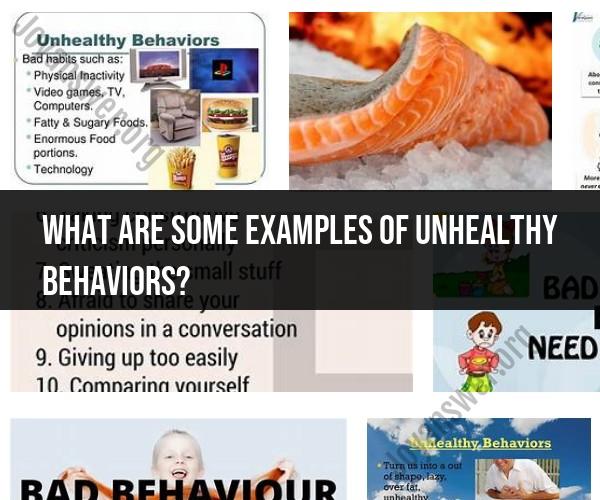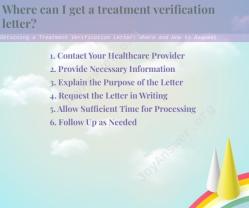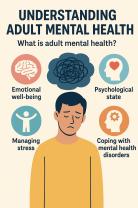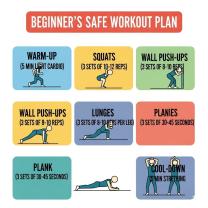What are some examples of unhealthy behaviors?
Unhealthy behaviors encompass a wide range of actions and habits that can have negative effects on an individual's physical, mental, or emotional well-being. Here are some examples of unhealthy behaviors:
Poor Diet: Consuming excessive amounts of unhealthy foods high in sugar, salt, and saturated fats, while lacking in essential nutrients, can lead to various health problems, including obesity, heart disease, and diabetes.
Sedentary Lifestyle: Physical inactivity, such as prolonged sitting and lack of exercise, is associated with a higher risk of obesity, cardiovascular disease, and musculoskeletal issues.
Smoking: Smoking tobacco products is a well-known unhealthy behavior linked to a wide range of health problems, including lung cancer, heart disease, and respiratory conditions.
Excessive Alcohol Consumption: Drinking alcohol in excess can harm the liver, contribute to addiction, impair judgment, and lead to accidents and risky behaviors.
Drug Abuse: The misuse of prescription drugs or illegal substances can have serious health consequences, including addiction, overdose, and damage to physical and mental health.
Lack of Sleep: Chronic sleep deprivation can lead to a range of health issues, including impaired cognitive function, mood disorders, and an increased risk of chronic diseases.
Stress and Anxiety: Prolonged and unmanaged stress and anxiety can negatively impact mental and physical health, contributing to conditions like depression, anxiety disorders, and cardiovascular problems.
Unsafe Sexual Practices: Engaging in unprotected sex or risky sexual behaviors without precautions can lead to sexually transmitted infections (STIs) and unintended pregnancies.
Ignoring Mental Health: Neglecting mental health needs, such as not seeking help for mental health disorders or not practicing self-care, can exacerbate mental health issues.
Overworking: An unhealthy work-life balance characterized by excessive work hours and chronic stress can lead to burnout, fatigue, and negative effects on mental and physical health.
Isolation: Social isolation and lack of social connections can contribute to feelings of loneliness and depression, negatively impacting mental health.
Risky Driving: Engaging in dangerous driving behaviors such as speeding, distracted driving, and driving under the influence of drugs or alcohol can lead to accidents and injuries.
Self-Harm: Engaging in self-harming behaviors, such as cutting or self-inflicted injuries, is a sign of emotional distress and should be taken seriously.
Negative Relationships: Remaining in abusive or unhealthy relationships, whether romantic, familial, or platonic, can have a detrimental effect on mental and emotional well-being.
Avoiding Preventive Healthcare: Neglecting routine medical check-ups and preventive healthcare measures can lead to undiagnosed or untreated health conditions.
It's important to recognize these unhealthy behaviors and take steps to address them, whether through self-help, seeking professional assistance, or making positive lifestyle changes. Promoting healthy behaviors and seeking support when needed is essential for overall well-being.
Unhealthy Behaviors: Recognizing Common Examples
Unhealthy behaviors are any behaviors that can have a negative impact on your physical or mental health. Some common examples of unhealthy behaviors include:
- Smoking: Smoking is one of the leading causes of preventable death and disease. It can damage your lungs, heart, and other organs, and it can increase your risk of developing cancer, stroke, heart disease, and other chronic diseases.
- Excessive alcohol consumption: Drinking too much alcohol can damage your liver, brain, and other organs. It can also lead to addiction, mental health problems, and social problems.
- Poor diet: Eating a diet that is high in processed foods, sugary drinks, and unhealthy fats can increase your risk of developing obesity, heart disease, stroke, diabetes, and other chronic diseases.
- Physical inactivity: Not getting enough physical activity can increase your risk of developing obesity, heart disease, stroke, diabetes, and other chronic diseases.
- Lack of sleep: Not getting enough sleep can impair your cognitive function, mood, and overall health.
- Stress: Chronic stress can lead to a variety of health problems, including heart disease, high blood pressure, anxiety, and depression.
Identifying Negative Habits and Behaviors
Here are some tips for identifying negative habits and behaviors:
- Pay attention to your body and mind. How do you feel after engaging in a particular behavior? Do you feel energized and refreshed, or do you feel tired, drained, or stressed?
- Identify your triggers. What are the things that make you more likely to engage in negative behaviors? Once you know your triggers, you can develop strategies for avoiding them or coping with them in a healthy way.
- Keep a journal. Keeping a journal can help you to track your behavior and identify patterns. This information can be helpful in developing a plan to change your behavior.
The Impact of Unhealthy Choices on Your Well-Being
Unhealthy choices can have a significant impact on your well-being. They can increase your risk of developing chronic diseases, impair your cognitive function, and damage your mental health.
Unhealthy choices can also make it difficult to live a fulfilling life. They can lead to fatigue, low energy, and mood swings. They can also damage your relationships and make it difficult to succeed at work or school.
Making Changes
If you are struggling with unhealthy behaviors, there are a number of things you can do to make changes. Here are some tips:
- Set realistic goals. Don't try to change too many things at once. Start by focusing on one or two behaviors that you want to change.
- Make a plan. Decide how you are going to achieve your goals. For example, if you want to quit smoking, you might need to develop a plan for how to deal with cravings and triggers.
- Seek support. Talk to your doctor, a therapist, or a trusted friend or family member about your goals. They can offer support and guidance.
Making changes to unhealthy behaviors can be challenging, but it is worth it. By making healthy choices, you can improve your physical and mental health, live a longer and more fulfilling life, and reduce your risk of developing chronic diseases.













